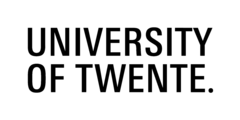Applied Mathematics

Are you good at mathematics and eager to use mathematical insights to help solve practical problems? Do you see yourself as the kind of mathematician who can formulate clear answers to complex societal challenges, for example in the field of the environment, (air) traffic flows, economy, care optimisation, or technology? Are you looking for a small-scale, academic programme, in which you will penetrate the depths of mathematics, while also equipping yourself to use your knowledge for developing real solutions for people and society? Then the three-year, English-taught Bachelor’s in Applied Mathematics (AM) is the right choice for you.
From day one you will engage in the abstract and formal aspects of mathematics, always keeping in mind its practical applicability. You will become familiar with calculus, linear algebra, probability and much more. At the same time, you will engage in applying the theory. One way of doing this is modelling: using abstraction to reduce complex problems to their essence, as described in mathematical terms, and then using mathematical analysis to identify solutions to the original problem. Modelling requires skills that you will gradually develop through the different learning lines that run through the programme. These learning lines include abstract mathematics, mathematical modelling and practical skills – think of programming, (intercultural) collaboration or presentation.
You will become a mathematician who has mastered to perfection the cycle of abstraction, analysis and solution, and who can easily participate in interdisciplinary teams. This means you will be able to make a substantial contribution to solving tough societal problems.
- Pažymių išrašas - jei dar nesi baigęs mokyklos, būtina prisegti pažymių išrašą. Smulkesnę informaciją kaip pildyti išrašą ir kada jis reikalingas, rasi čia.
- Brandos atestatas – jei jau esi baigęs mokyklą, išrašo nereikia, užtenka prie anketos prisegti savo Brandos atestatą.
SVARBU! Stojimo mokestis - universitetas taiko 100 EUR stojimo mokestį, kurį privalai susimokėti aplikuodamas į jį (kai atsiųsi stojimo anketą, tau bus paaiškinta kaip tai padaryti). ČIA gali rasti daugiau informacijos apie šį mokestį ir kodėl jis yra taikomas.
Pastaba!
- CV - stojant į visas bakalauro programas reikia pateikti savo CV.
- Motyvacinis laiškas yra NEprivalomas dokumentas stojant į šio universiteto programas, išskyrus:
- Advanced Technology
- Chemical Science and Engineering
- Vienas iš stojimo etapų į University of Twente yra Matching/Selection procedure (reikės atlikti papildomas užduotis-dažniasiai klausimynas).
Anglų kalbos žinias gali patvirtinti vienu iš šių būdų:
- turėti anglų kalbos pažymį Brandos atestate ir išlaikyti Anglų kalbos valstybinį egzaminą ne mažiau kaip 36 balais.
arba
- išlaikyti IELTS arba TOEFL testą.
*Jeigu nori pasitikrinti ar tavo anglų kalbos žinios yra pakankamos studijuoti Nyderlandų aukštosiose – suteikiame galimybę laikyti Oxford anglų kalbos testą. Nors anglų kalbos testas nėra reikalaujamas, patartina žinoti savo galimybes ir kalbos lygį.
Stojant į į University of Twente programas būtina laikyti ne mažiau kaip 3 valstybinius egzaminus ir juos išlaikyti ne mažiau 36 balais.
Stojant į Applied Mathematics programą būtina:
- Matematiką - mokytis aukštesniuoju (A) lygiu ir išlaikyti valstybinį egzaminą.
- Likę, 2 būtini valstybiniai egzaminai pasirinktinai (vienas iš 2 gali būti anglų kalbos egzaminas).
Visi, kurie dar nėra pabaigę mokyklos ir į šį universitetą stoja besimokydami 12 klasėje, kartu su pažymių išrašu privalo prisegti ir numatomų egzaminų formą. Norėdami rasti ir atsisiųsti numatomų egzaminų formą reikia:
- Užsiregistruoti Kastu svetainėje;
- Pradėti pildyti Kastu internetinę stojimo anketą;
- Pridėti dominančią University of Twente bakalauro programą prie savo pasirinkimų.
Kai atliksite šiuos veiksmus, skiltyje „Dokumentai“ galėsite atsisiųsti numatomų egzaminų formą.
As a student of Applied Mathematics, you will have plenty of interesting job opportunities ahead of you. To give you an idea, we list some of the positions you could end up in as a graduate below.
- Data Scientist
- Operations Researcher
- Teacher
- Policy Maker
- AI Expert
- Research & Development Specialist

